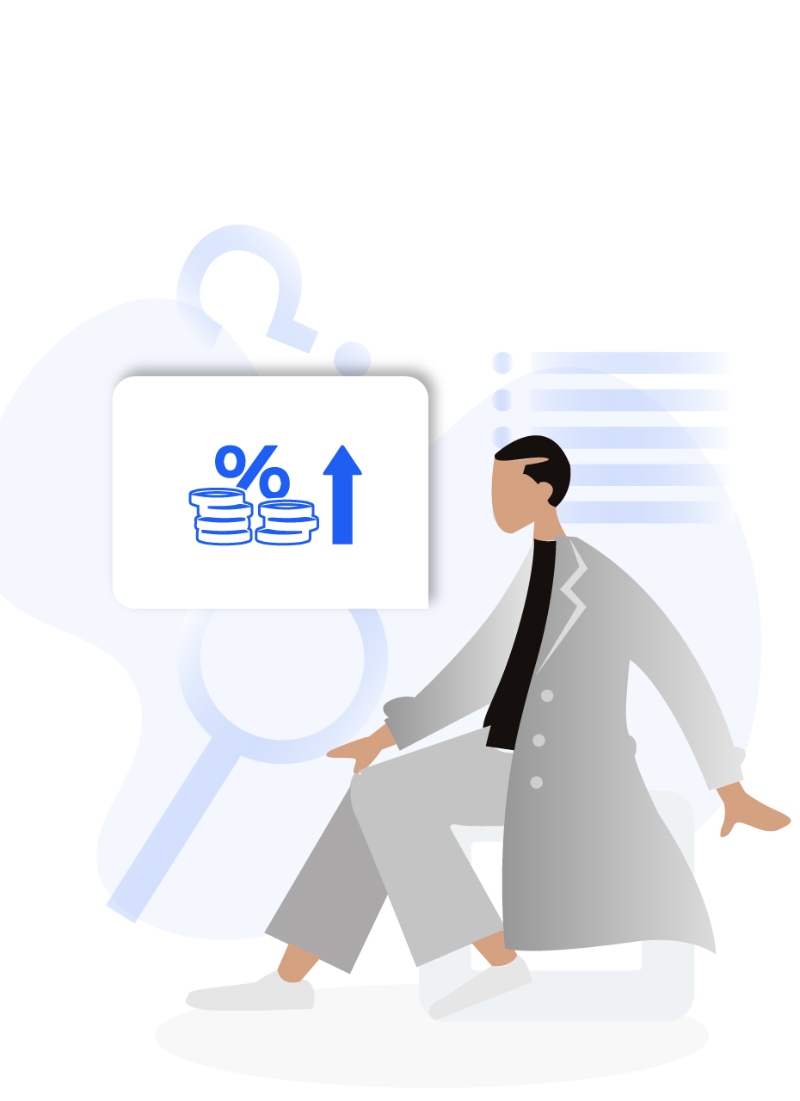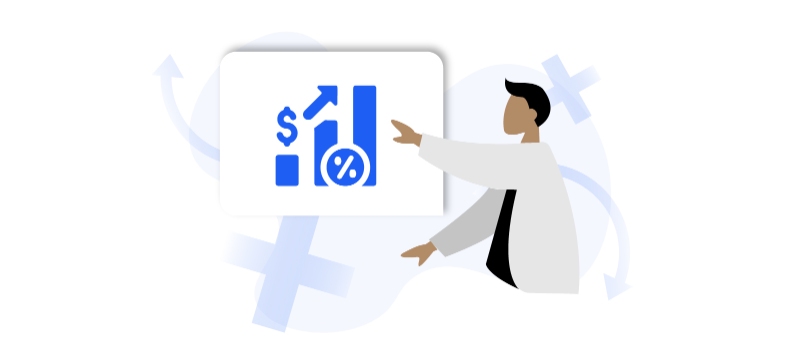In today’s uncertain economy, interest rates swing up and down at the drop of a hat. Lack of credit makes the rates go down, and an abundance makes rates go up. But what are interest rates and how do they affect your business?

What is an Interest Rate?
When talking about interest rates, people usually refer to the interest percentages that banks charge on loans. In most countries, it is the central bank that decides the rates at which interest can be charged. This affects rates on multiple types of loans, such as personal loans, business loans and more.
These interest rates are a good indicator of the economic health of countries since they affect all businesses and individuals. If the economy is slowing down and people can’t afford to spend money, then the banks lower the interest rates to stimulate economic growth. This goes both ways since a stronger economy and a higher inclination to spend for consumers means that they can tolerate higher interest rates without being affected too harshly.
Impact of Increased Interest Rates on Small Businesses
Businesses, especially small businesses or startups are especially vulnerable to changing interest rates. This is because a smaller business often has smaller cash reserves and depends on loans to get through each financial quarter. Startups sometimes take years to turn profitable, and until then, they are completely dependent on business loans and VCs to ensure their survival.

Here are some of the ways in which an increased interest rate is harmful to smaller businesses:
Business Planning
When interest rates are fluctuating, determining the cost of future loans(or existing business loans in the case of a variable rate loan) is a tough challenge, and makes planning your company’s future finances very hard.
Securing Funding
When interest rates rise, they affect pre existing loans too. Almost every business has outstanding loans that they’d like to pay off as soon as possible; but with higher interest rates the existing loans take longer to pay off, which in turn limits your business’s ability to apply for short term loans.
Cash Flow
Smaller businesses have limited cash flows to operate with. High interest rates force these businesses to set aside more money to repay their loans and old debt, which reduces the profit margins of the business.
Consumer Income Decrease
The majority of consumers have less disposable income when interest rates go up, leaving them with a reduced ability to make purchases. Lesser purchases mean a decrease in sales, further leading to a decrease in profits. Banks also provide fewer loans when interest rates are high, affecting both consumers and businesses alike.
Access to Credit
High business loan rates make long term debt harder to escape and short term loans difficult to obtain from banks. Small businesses need a ton of invested capital until they turn sizeable profits, and obstructed access to loans makes it much harder to expand a business.
Types Of Loans
There are many different types of loans a small business can apply for, depending on the intended use. Here are a few of the most common types of loans a small business can get.
Startup Loans
Startup business loans are an option for entrepreneurs looking to kick start their latest enterprise with some early stage funding. Equity financing and crowdfunding are some popular alternative options to getting a startup loan from the bank.
Equipment Financing
If your business needs some specialized equipment, consider applying for equipment financing solutions. Your loan will be secured against the equipment you’re borrowing to buy, which helps reduce the loan interest rate.
Commercial Real Estate Loans
If you’re looking to buy a new office or invest in a warehouse or storage facility; a commercial real estate loan might be a great option for you. With these loans, you can either buy a brand new space or renovate your existing offices.
Term Loan
A term loan is a standard business loan with a repayment schedule that is either monthly or quarterly in nature. A fixed interest rate helps protect you against an increase in interest rates in the future. Another point in its favour is its stability. Since the repayment schedule and interest rate are both fixed, it is easy to calculate your finances and create a long term vision for your company.
Conclusion
As we’ve read above, there are various problems that arise with changes in existing interest rates, mostly for small businesses and consumers. Careful management of your finances is key to getting through rough patches like these financially unscathed.


